Publications
Articles, publications, books, tools and multimedia features from the U.S. Institute of Peace provide the latest news, analysis, research findings, practitioner guides and reports, all related to the conflict zones and issues that are at the center of the Institute’s work to prevent and reduce violent conflict.
Question And Answer
Amid a Changing Global Order, NATO Looks East
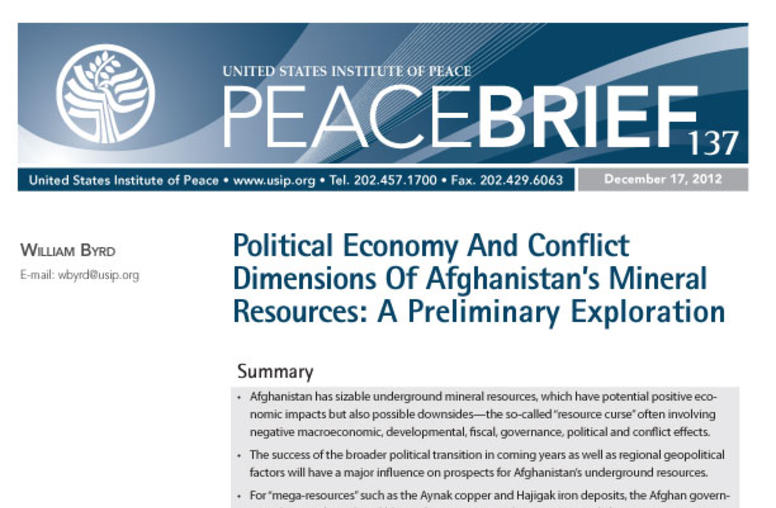
Political Economy and Conflict Dimensions of Afghanistan’s Mineral Resources: A Preliminary Exploration
This paper reflects some initial thinking on the mining sector, in the context of his broader interest in the political economy and conflict implications of sizable financial flows in Afghanistan, also including those generated by illicit narcotics and aid.
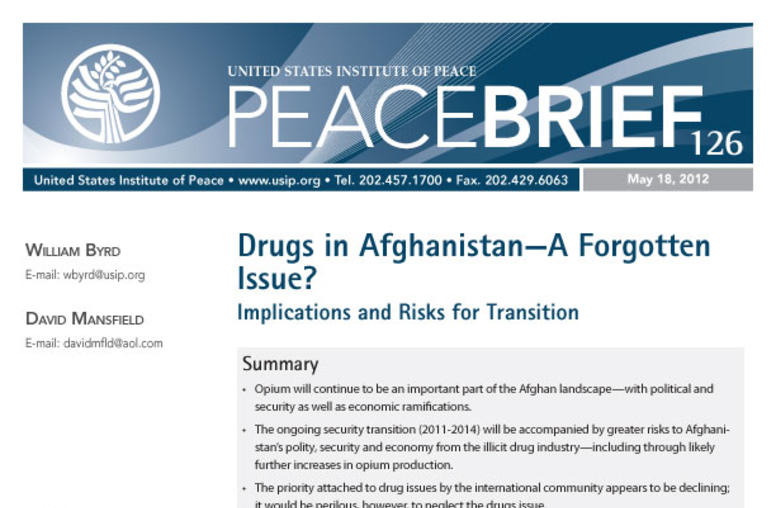
Drugs in Afghanistan—A Forgotten Issue?
This paper reflects both authors' concern that neglect of the opium economy in coming years could be perilous, exacerbate problems, possibly lead to poorly thought-out knee-jerk reactions and/or simplistic responses which would only worsen the situation, and further damage the prospects for success of what will inevitably be a difficult and challenging process of transition in Afghanistan.
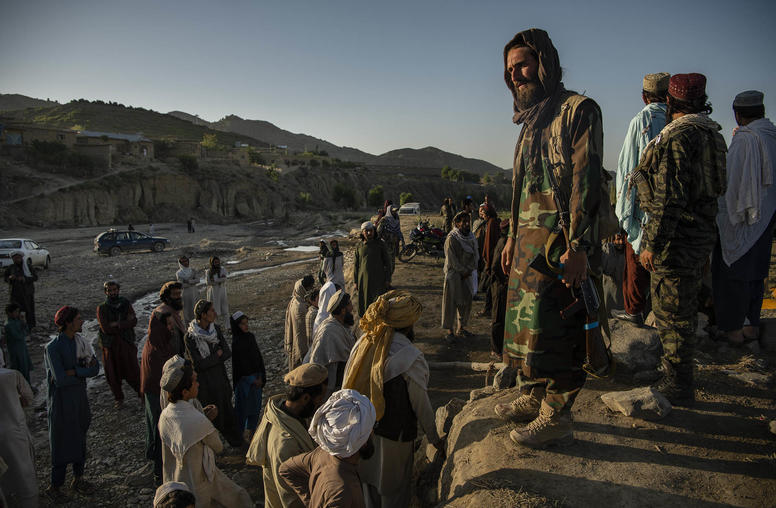
One Year Later, Taliban Unable to Reverse Afghanistan’s Economic Decline
Afghanistan’s economy was already deteriorating before the Taliban takeover of the country on August 15, 2021, suffering from severe drought, the COVID-19 pandemic, declining confidence in the previous government, falling international military spending as U.S. and other foreign troops left, human and capital flight, and Taliban advances on the battlefield. Then came the abrupt cutoff of civilian and security aid (more than $8 billion per year, equivalent to 40% of Afghanistan’s GDP) immediately after the Taliban takeover. No country in the world could have absorbed such an enormous economic shock — exacerbated by sanctions, the freezing of Afghanistan’s foreign exchange reserves and foreign banks’ reluctance to do business with the country.
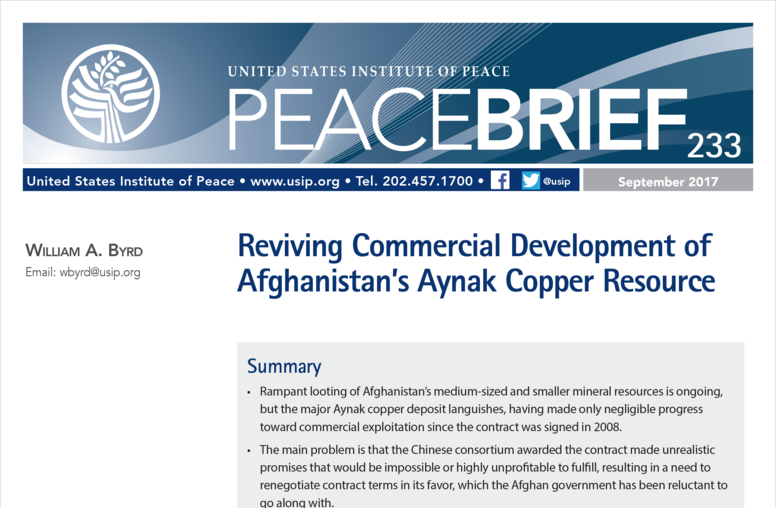
Reviving Commercial Development of Afghanistan’s Aynak Copper Resource
While other, smaller mineral resources are being rampantly looted, Afghanistan’s large Aynak copper deposit—worth upward $50 billion—has languished unexploited despite being contracted to a Chinese consortium nearly a decade ago. This Peace Brief seeks to understand what went wrong and explores options for breaking out of the current impasse. Resuscitating the development of Aynak, though challenging, would send a powerful signal of beneficial exploitation of Afghanistan’s mineral resources.
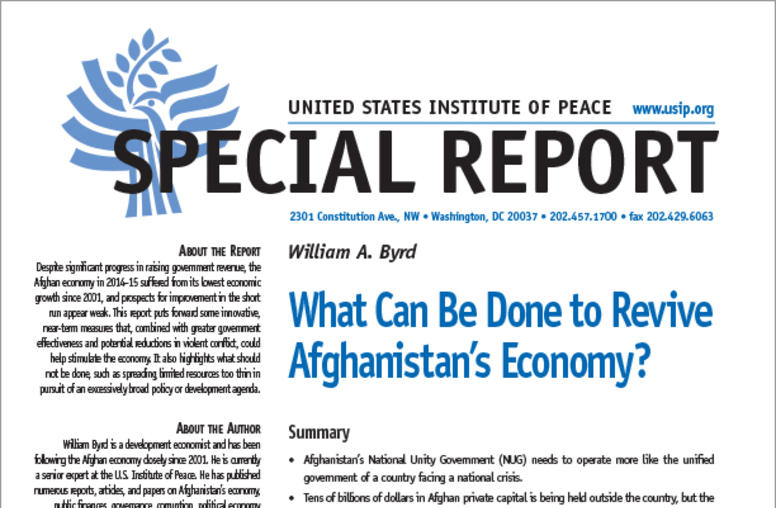
What Can Be Done to Revive Afghanistan’s Economy?
Reviving the Afghan economy during a time of intensifying violent conflict, declining external financial aid, and ongoing political uncertainty and dysfunction will be extremely challenging. But the country cannot wait for these entrenched problems to be addressed. While keeping expectations modest, this report proposes some targeted, near-term measures to increase confidence and stimulate the economy. Rather than engaging in politics as usual and following conventional policy prescriptions t...
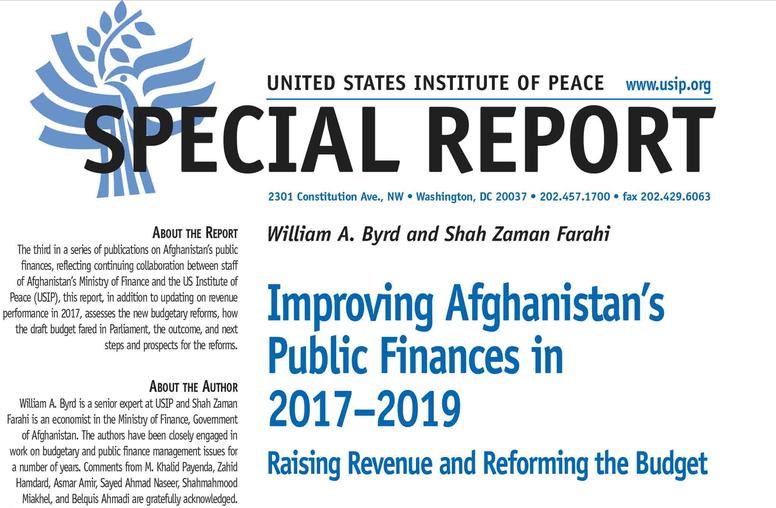
Improving Afghanistan’s Public Finances in 2017–2019: Raising Revenue and Reforming the Budget
The Afghan government has recently embarked on important reforms to the national budget, embodied in the 2018 budget approved by Parliament early this year. This budget sets in motion an envisaged two-year reform process to achieve greater overall transparency, better development programming, and reduced corruption. The third in a series on Afghanistan’s public finances, this report updates revenue performance in 2017 and assesses the new budgetary reforms, how the draft budget fared in Parliament, the outcome, and next steps and prospects for the reforms.
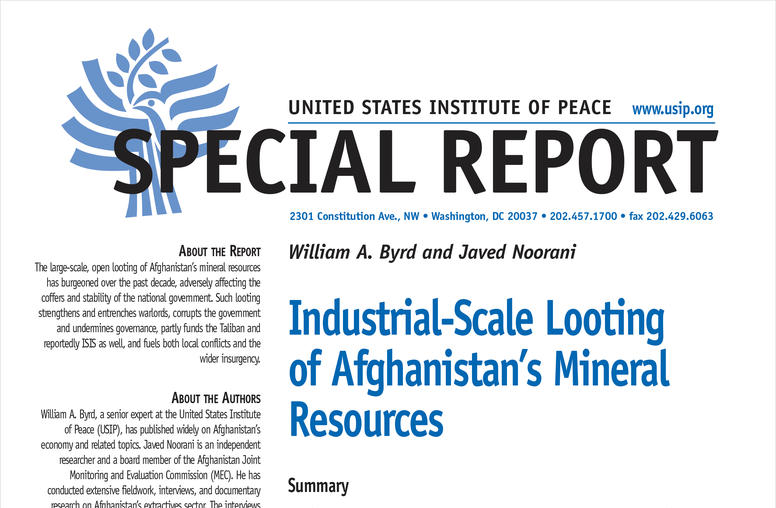
Industrial-Scale Looting of Afghanistan’s Mineral Resources
Afghanistan has been plagued by large-scale, open looting of mineral resources, involving significant mining operations, bulk transport of minerals along main roads, and crossing the border at just a few, government-controlled points. This mineral looting, amounting to hundreds of millions of dollars per year, involves widespread corruption, entrenches warlords and their networks, and fuels both local conflicts and the wider insurgency in Afghanistan. The government needs to begin to get a better handle on resource exploitation and to collect more substantial royalties and taxes from ongoing mining activities.
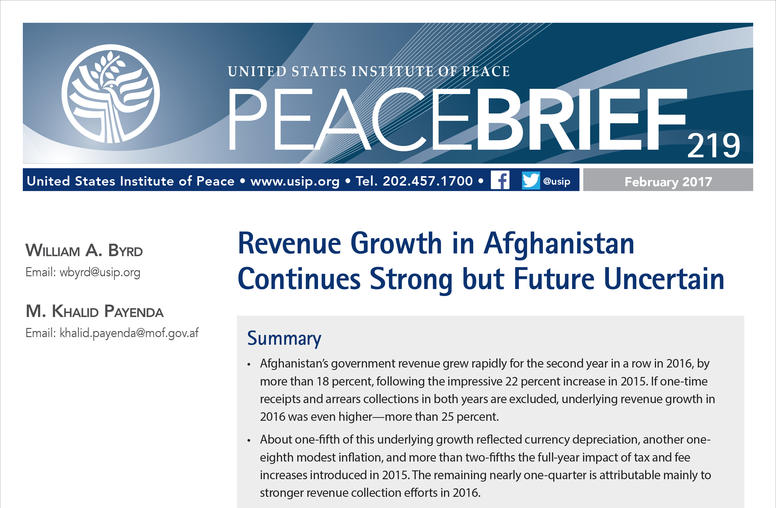
Revenue Growth in Afghanistan Continues Strong but Future Uncertain
This Peace Brief analyzes the main ingredients behind this success. In the end, however, the authors believe that sustained robust revenue growth will hinge on a durable revival of the Afghan economy, which in turn depends on achieving major progress toward peace.
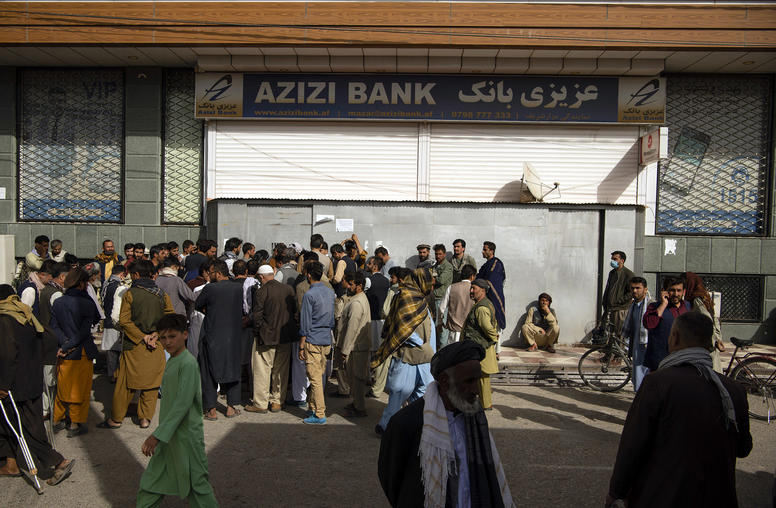
Taliban Are Collecting Revenue — But How Are They Spending It?
Although economic and humanitarian conditions in Afghanistan continue to deteriorate, the Taliban have taken some positive steps toward financial stability by publishing a fiscally responsible three-month budget and raising considerable amounts of domestic revenue — especially through customs duties, which have risen with a crackdown on corruption.
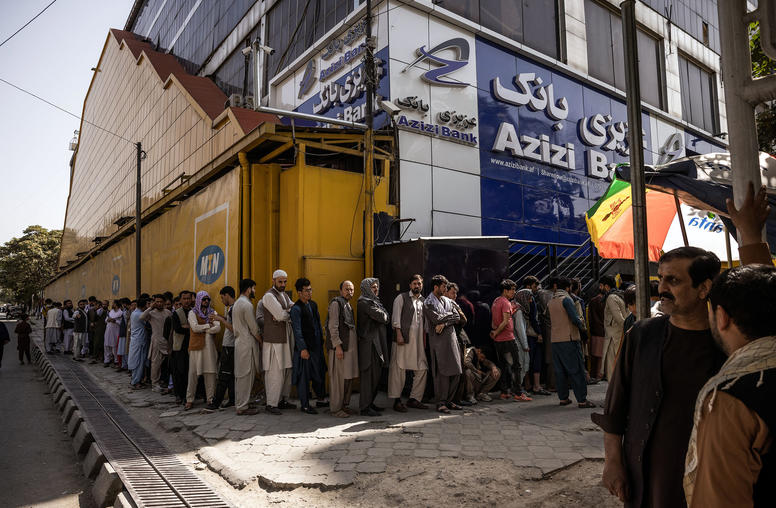
Afghanistan’s Frozen Foreign Exchange Reserves: What Happened, What’s Next
President Biden’s executive order blocking more than $7 billion of Afghan foreign currency reserves held at the U.S. central bank left confusion and consternation in its wake. And no wonder: The administration was seeking to balance a complex set of legal, foreign policy and political considerations.